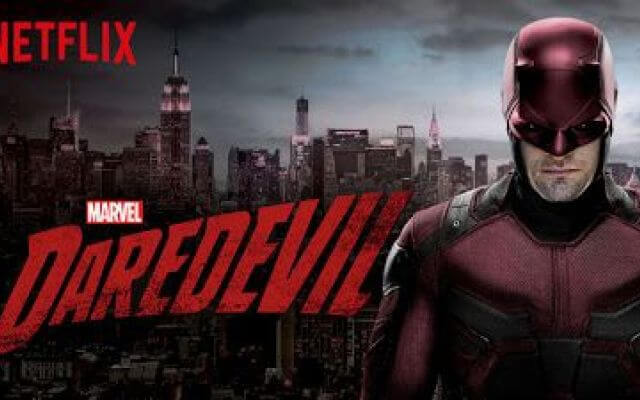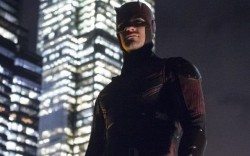Daredevil: Darkness, Surprises and Blind Justice
The second season of Daredevil, in more ways than one, starts with a bang. The first episode chooses to hit the ground running, showing us a Matt Murdock/Daredevil that is much more comfortable with the duality of his life, even enjoying both sides. This is quickly and bloodily brought to a halt with the introduction of Frank Castle, known to comic book fans as The Punisher – who shoots Daredevil in the face when they first meet each other.
The madness, with breaks for some legal drama only escalates from there. Daredevil has changed its structure along with its showrunner, opting for almost self-contained, three or four episode arcs that tie back into the overall narrative of the season – making it a far more digestible binge watching affair than the first season – and better yet, it does well to juggle the sprawling plot arcs that the new season has taken on.
Potentially the strongest part of the new season is its handling of two significant figures in Daredevil’s comic book canon: The Punisher (Jon Bernthal) and Elektra (Elodie Yung). Daredevil continues to show the strengths of superhero television over the blockbusters in its brilliant, affecting, and often terrifying characterizations of Frank Castle and Elektra Nachios, both dealing with their own internal trauma over the course of the season.
Bernthal’s Castle is at once absolutely ruthless (Netflix really doesn’t hold back with the bloodshed) and heartbreaking, someone who seems trapped in their ways through no fault of his own – the story about his family would be clichéd if it wasn’t sold so well. That said, the season gets a considerable jolt in the arm once Elektra turns up. The character is mysterious, playful, and deadly in a way the show hasn’t seen, and seeing her and Murdock on screen together is never dull. The supporting characters are given more to do this season, with Karen Page (Deborah Ann Woll) taking on more of a central role in the firm of Nelson and Murdock (seriously, she needs a new job title that isn’t ‘secretary’), and Foggy coming into his own during Matt’s struggle to make time for his job.
Daredevil is dark both in tone and literally – with half of the action taking place at night or in a corridor or creepy lair, be prepared to turn up the brightness on your laptop.

Elodie Yung stars as Elektra. Image: Flickr/ Television Streaming
But along with the new intriguing characters and some much needed levity sprinkled in the dialogue, the cinematography and the fight scenes are what keep the show from becoming monotonous and overly dour. Along with the new suit, the ‘Devil of Hell’s Kitchen’ (I wish they’d just call him Daredevil already) has an altered fighting style, which means fewer flips than last season, but he still packs a punch.
The third episode featuring a sequel of sorts to the acclaimed one – take the corridor fight in the second episode, “Cut Man”, adding a vertical element, some interesting weapons, and a sense of fun to the proceedings; Murdock even laughing before proceeding to beat the hell out of a gang of bikers. Unlike many superhero fights, the fight scenes in Daredevil have a palpable sense of danger.
Matt isn’t invincible and it more than often shows, which makes for some heart-stopping television, and that’s not just because he’s fighting ninjas – it’s because we actually feel like he can lose.
This also translates into the narrative, which seems to have it in for Matt for what seems like the entire season, the show determined to never let him have it easy. This means there’s a lot of moralizing and philosophizing, but while this makes a great change from the punching, explosions and one-liners of standard superhero narratives, Daredevil still has a bit of a subtlety problem. Subtlety seems almost unfair to expect of this kind of show, but the issue with Daredevil is how ham-fisted the dialogue can come across sometimes. For a superhero show that prides itself on being grounded, there’s a lot of grandstanding and dramatic statements that real people probably wouldn’t say.
That’s not enough to stop me from binge-watching this show though. Daredevil is still one of Marvel’s best productions yet; free from the burden of origin-telling, there are many surprises and little predictability or boredom in the second season. The narrative is sprawling and sometimes stumbles, but the cast shines, the fights are as thrilling and brutal as ever, and it’s just so damn addictive.


Comments